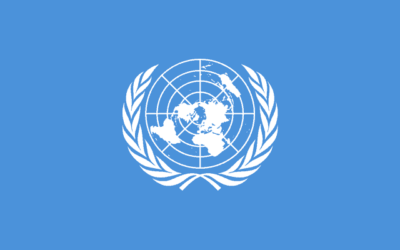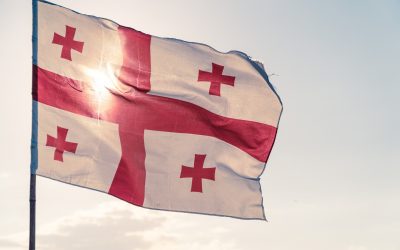Mechanizmy rozpatrywania skarg zapewniane przez państwo to między innymi mechanizmy sądowe i pozasądowe nadzorowane i wspomagane przez organy państwowe i/lub sądy. Forma mechanizmu umożliwiającego dochodzenie zadośćuczynienia czy odszkodowania uzależniona jest od popełnionego nadużycia oraz odpowiedzialności, jaką za sobą pociąga (liability). Niektóre nadużycia mogą rodzić powstanie odpowiedzialności karnej, inne wiążą się z odpowiedzialnością cywilną, jeszcze inne pociągają za sobą zarówno odpowiedzialność karną, jak i cywilną, a wszystko zależy od jurysdykcji. Krótko mówiąc, różnica pomiędzy karnymi środkami naprawczymi a sankcjami cywilnymi polega na tym, że „prawo karne ma na celu karanie, a prawo cywilne dąży do zadośćuczynienia.”
Mechanizmy sądowe występują w sądach lokalnych i krajowych. Tymczasem mechanizmy pozasądowe są dostępne między innymi w Krajowych Punktach Kontaktowych OECD, biurach rzeczników praw człowieka, a także w krajowych instytucjach praw człowieka (zwłaszcza tych, do których kompetencji należy przyjmowanie skarg).
Środki zaradcze na gruncie prawa cywilnego służą głównie do zadośćuczynienia ofiarom lub zapewnienia im powrotu do sytuacji sprzed zaistnienia szkód. Jedynie ofiary nadużyć, a w niektórych przypadkach bliscy ofiar, mogą złożyć powództwo cywilne przeciwko podmiotom, które spowodowały szkody. Środki naprawcze o charakterze cywilnym często przybierają formę finansowej lub niefinansowej rekompensaty, ale mogą także należeć do nich przeprosiny, restytucja, a także zapobieganie dalszym szkodom poprzez nakazy i gwarancje niewystąpienia kolejnych naruszeń.
Karne środki naprawcze lub sankcje leżą w gestii państwa i mogą być nakładane zarówno przy udziale ofiary nadużyć, jak i bez ich udziału. Karne środki naprawcze lub sankcje wobec osoby fizycznej lub prawnej (tj. przedsiębiorstwa) mogą przybierać rozmaite formy, w tym pozbawienie wolności, areszt domowy, dozór, grzywna, restytucja i prace społeczne.
Powyższy tekst powstał na podstawie materiałów opracowanych przez Duński Instytut Praw Człowieka Danish Institute for Human Rights Global NAPs website. Więcej informacji uzyskasz na portalu Business & Human Rights Resource Centre poświęconym tematyce odpowiedzialności prawnej korporacji Corporate Legal Accountability.








